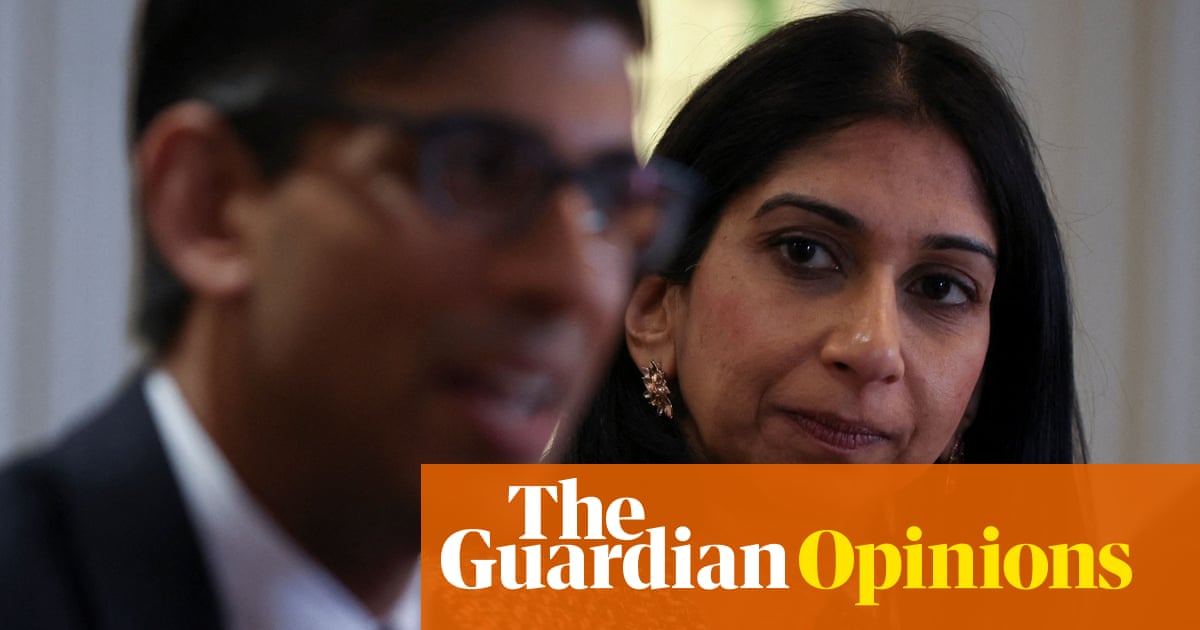
A barrister who has said that the courts should stay out of politics has been appointed as the Government"s most senior lawyer amid Boris Johnson"s growing battle with the judiciary.
Suella Braverman, a former leader of backbench Tory Eurosceptics, replaced Geoffrey Cox as Attorney General in a Cabinet reshuffle in which the Prime Minister rewarded loyalists and sacked those who defied him.
Other promotions included Cabinet Office minister Oliver Dowden, promoted to Culture secretary and Defence minister and Johnson ally Anne-Marie Trevelyan who took over as International Development secretary.
Alok Sharma, the former Dfid secretary, was given the plum role of organising the preparations for November"s COP26 United Nations Climate Change conference in November as well as Business secretary.
The appointment of Cambridge law graduate Mrs Braverman will set off alarm bells for judges after she said Parliament must "retrace power ceded to the courts" in an article last month.
She wrote: "Repatriated powers from the EU will mean precious little if our courts continue to act as political decision-maker, pronouncing on what the law ought to be and supplanting Parliament.
"Traditionally, Parliament made the law and judges applied it. But today, our courts exercise a form of political power."
She also said that while the Human Rights Act was "noble in its intentions", "the concept of "fundamental" human rights has been stretched beyond recognition".
Overall Mr Johnson cut the number of Cabinet ministers from 31 to 26, by slashing the number of junior ministers who can attend the weekly meetings from nine to holders of just four positions - Chief Secretary to the Treasury, Leader of the House of Commons, Chief Whip and Attorney General.
Other ministers representing Housing, Northern Powerhouse, Business and Environment as well as the Paymaster General lost their right to attend.
The reshuffle fell short of the long predicted merger of the Foreign Office and International Development departments although four ministers appointed to roles in both departments - James Cleverly, the former party chairman, Lord Goldsmith of Richmond Park, Baroness Sugg and Nigel Adams, the former Culture minister.
Lord Goldsmith - who as former Tory MP Zac Goldsmith edited the Ecologist magazine - was given a third role as minister in the Department for the Environment, Food and Rural Affairs.
In all, nine ministers were given new roles in the Cabinet. Rishi Sunak replaced Sajid Javid, who quit after he was asked to continue as Chancellor as long as he sacked five of his special advisers.
George Eustice was promoted to Environment secretary from his longheld position of number two in the department while Amanda Milling, a former whip, was made party chairman. Steve Barclay, who quit as Exiting the European Union secretary when his department was wound up as the UK left the EU last month, was made Chief Secretary to the Treasury, and allowed to attend Cabinet.
Ministers who clashed with Mr Johnson or defied him were fired in a move which one Tory source showed Mr Johnson was "a jealous god". Northern Ireland secretary Julian Smith was sacked amid claims that he had left Mr Johnson blindsided over a risk of more prosecutions to veterans, and clashes over Brexit.
He was replaced by Home Office minister Brandon Lewis, who as party chairman launched an inquiry into Mr Johnson after he suggest women wearing the burqa looked like letter boxes or bank robbers.
Andrea Leadsom, the veteran Cabinet minister who once challenged Theresa May for the party leadership, was sacked days after warning the Prime Minister not to fire female ministers.
Housing minister Esther McVey was sacked amid concerns about meeting the Government"s housing target and after a well-publicised spat with Johnson-ally Robert Jenrick. Ms McVey was replaced by former Foreign Office minister Chris Pincher making him the 10th new Housing minister over the past decade.
It is a similar story in the Education department, which last night was awaiting its sixth Universities Minister in two years following the departure of Chris Skidmore.
Ben Wallace, the Defence secretary, held onto his job despite overnight reports that he could be sacked by Mr Johnson after it emerged that he was not attending this weekend"s security conference in Munich. Number 10 had briefed on Wednesday that Mr Wallace was being replaced by Andrew Murrison, a Foreign Office minister.
However Mr Murrison was then sacked in a 8.30am phone call by Mr Johnson yesterday. At the Department for Transport, Grant Shapps stayed on as Secretary of State but lost two of his junior ministers George Freeman and Nusrat Ghani, who had been tipped to be new HS2 minister.
There was a return to the Government for new Paymaster General Penny Mordaunt, who was not reappointed as Defence secretary by Mr Johnson last summer.
Mark Spencer who had been pushing to be made Environment secretary remained as Government"s chief whip. James Brokenshire returned to Government as a minister of state in the Home Office while Jeremy Quin was made a minister of state in the Ministry of Defence.
Helen Whately has been made minister of state in the Department of Health and Social Care and Chloe Smith is prompted to minister of state in the Cabinet Office.












